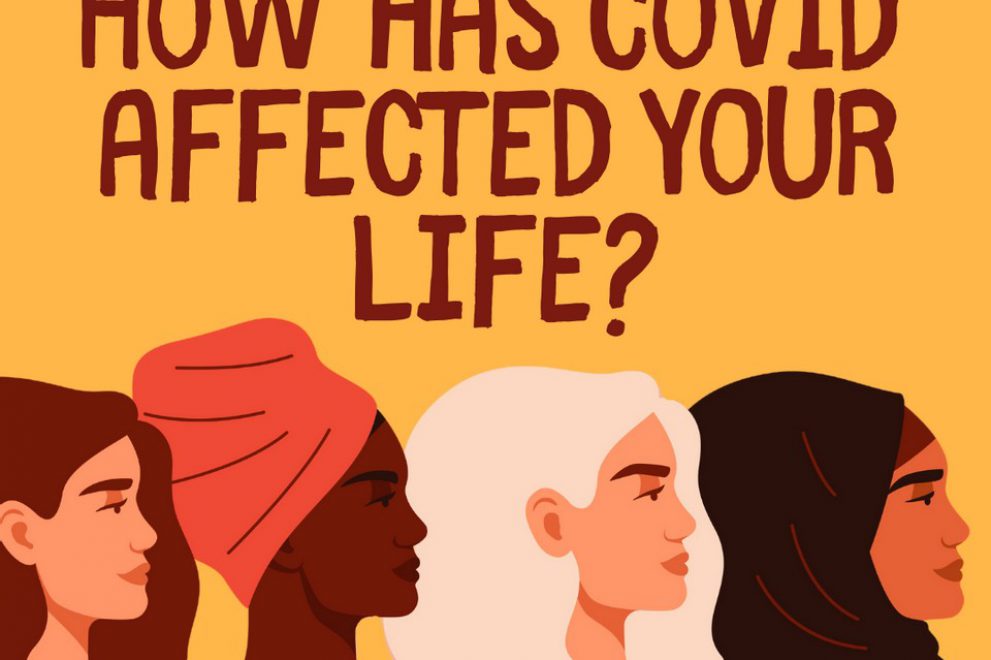Your cart is empty.


Your cart is empty.
This material is designed and intended to provide general information in summary form on legal topics, current at the time of publication, for general informational purposes only. This is not legal advice.
The climate of COVID19 has led to an increase in working from home due to public health orders. A frequent enquiry the Working Womens Centre receives is employees seeking advice on their right to continue working from home. For some, medical conditions or parental obligations means that it is more convenient to continue working from home.
Requesting to Work from Home
Employees may make a request to their employer for flexible working arrangements. This includes a request to work from home.
To be eligible in requesting a flexible working arrangement under the National Employment Standards, you must have been working for the employer for a period of 12 months.
If you are a casual worker, you must have been working for the employer for a period of 12 months on a regular and systematic basis and intend to continue working on this basis.
Please see the following draft template to make a request to your employer to work from home:
“[DATE]
Dear [MANAGER]
Re: Request for Flexible Working Arrangement | Working from Home
I am writing to request a flexible working arrangement as at [DATE] until [DATE].
As I have been employed by [BUSINESS NAME] for over 12 months, I am entitled to make this request pursuant to section 65 of the Fair Work Act 2009 (“the Act”).
My reason for this request is due to:
[DELETE INAPPLICABLE]
[SET OUT DETAILS OF REQUEST AND REASON FOR CHANGE].
[EXAMPLE: MY PARENTAL OBLIGATIONS MEAN I AM REQUIRED TO COLLECT MY CHILD FROM SCHOOL AT 3:30PM. THIS IS FACILITATED BY MY WORKING FROM HOME AS I AM ABLE TO DO THIS ON MY LUNCH BREAK]
Due to these circumstances, I am requesting to continue [OR] commence working from home at my current contracted hours [OR] at altered hours.
I look forward to your response within 21 days of receipt of this letter.
Kind Regards
[YOUR NAME]”
Should your employer’s request recent medical evidence in response to your request for flexible working arrangements, in some instances, this can be seen as a reasonable request.
Employees must follow lawful and reasonable directions given by their employers.
Failing to follow a lawful and reasonable direction can be grounds for a dismissal, providing appropriate disciplinary measures are followed. You should obtain legal advice on the specific nature of your employer’s request and any legal obligation you have to comply with a management direction.
Work Health and Safety when Working from Home
A Person Conducting a Business or Undertaking (PCBU) has a duty of care to ensure the health and safety of workers while at work. An employee has a duty to take reasonable care for their own health and safety, and to follow reasonable directions from management.
The employer’s duty to ensure the health and safety of workers extends to while employees are working from home. Given the current climate of COVID19 and the increase of working from home, it is important that workers are set up to work from home in a safe way.
Performing work from home can present new risks to health and safety. Potential concerns for health and safety that arise from working from home include:
Working Women’s Centre Recommendation
We strongly encourage employees to join their relevant Union for ongoing support and advice in relation to their employment rights.
To find your relevant union and join today, please see the following link:
This book recommendation list is compiled by WWC staff and volunteers to guide you on what to read during the upcoming holiday if you want to learn and reflect more about feminism and worker’s rights!
Updated on 21 December 2021
Disclaimer: Please note that this is general information and should not be taken as legal advice. Working Women Centre SA doesn’t own the copyrights of the following books.
by Caroline Criado Perez
All about how data excludes women in day-to-day life. pretty dense but easy to understand/read, has a chapter exclusively on work.
by Elizabeth Wynhausen
Stories from an academic who went undercover in a number of ‘low-skilled’ jobs to see what life in that line of work was like.
by Kate Ellis
Former Australian politician Kate Ellis explores the good, the bad and the ugly of life as a woman in Australian politics.
by Koa Beck
About the knotted history of racism within women’s movements and feminist culture, past and present.
by Mikki Kendall
by Brit Bennett, Nicole Dennis-Benn and 15 others
by Margaret Atwood
by Cho Nam-Joo
A novel. The life story of one young woman born at the end of the twentieth century raises questions about endemic misogyny and institutional oppression.
by Rebecca Makkai
A novel following the AIDS crisis in Chicago. Love, community and activism. This story will stay with you for life.
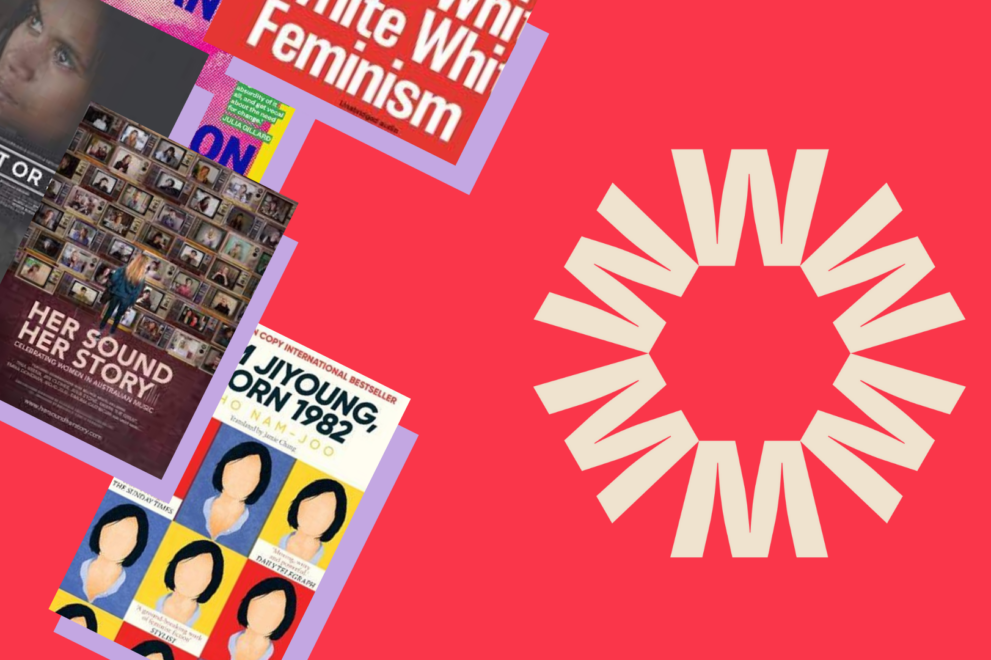
This material is designed and intended to provide general information in summary form on legal topics, current at the time of publication, for general informational purposes only. This is not legal advice.
In this webinar Industrial Officer Lungaka Mbedla from the Working Women’s Centre SA Inc presents an overview of the common workplace issues in the hospitality industry in South Australia. Presented with the South Australian Restaurant and Catering Association with:
The Working Women’s Centre would like to invite you to our upcoming Feminist Action Session where we will discuss how young people are successfully advocating for themselves and others.
This event is an opportunity for young people to share their experiences of advocating for change. You will hear from young advocates who have made a difference in environmental justice, workers’ rights, migrant worker justice and more. You will be able to hear from young advocates overcoming challenges and successfully speaking up for their community.
This event will be a good opportunity for both experienced advocates and young people who are new to advocacy to have a chat and meet other like-minded people.
To register for the event, please fill in the form below.
The venue is wheelchair accessible. The nearest disability access bathrooms are at the Adelaide Train Station.
We acknowledge that this event is on Kaurna land and we pay our respect to the traditional custodians of the land, past and present . Sovereignty was never ceded.
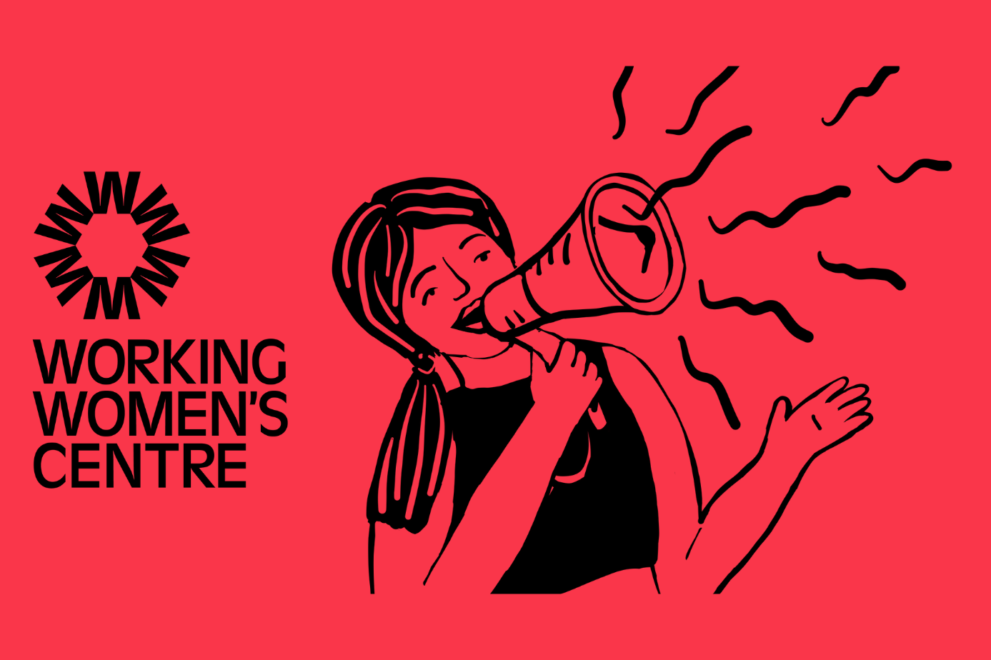
This material is designed and intended to provide general information in summary form on legal topics, current at the time of publication, for general informational purposes only. This is not legal advice.
Thousands of workers have had to stop working due to the South Australian lockdown. If you have lost income, there are a few different types of financial relief available for workers. We have compiled the different payments available in one place.
Updated on 26 July 2021
Disclaimer: Please note that this is general information and should not be taken as legal or financial advice. We will do our best to keep this up to date, but if you believe there is something missing from this list, please contact reception@wwc.org.au
Before looking for financial relief, you should check to see whether you have any Paid Leave options available that apply to this situation. Look at your employment contract and/or your Award or Enterprise Agreement to see what you may be entitled to. Leave entitlements vary between employers and industries. If you are a full time or part time worker, you may consider taking Annual Leave. Some employers may have special paid COVID-19 leave. Depending on the type of work you do, you could also ask to work from home for the period of the lockdown.
If you aren’t sure what your options are, get in touch with your union or the Working Women’s Centre for advice.
This is a payment for workers impacted by the lockdown. If you live in or have visited a Commonwealth-declared COVID-19 hotspot, which includes the Adelaide Metropolitan area, you may be eligible for this payment. The South Australian government has also extended this payment to workers in regional SA.
You may be eligible to receive this payment if you are unable to work due to:
To receive this payment you must be 17 or older, and an Australian resident or a temporary visa holder who is legally able to work in Australia.
The payment amount is $1500 for every 14-day period of meeting the above eligibility criteria. Applications can be made over the phone.
This payment is for workers who have visited a declared exposure site and are required to self-isolate, and don’t have access to paid leave or income support. It is a once-off payment of $300, and you can find further information about eligibility and apply via an online form. Australian residents and temporary visa holders, including international students, can access this payment.
This is a one-off payment that can be received if you have to quarantine or self-isolate, or are caring for someone who has to do so, but it cannot be claimed if you are simply in lockdown.
You may be eligible for this payment if you are in severe financial hardship and are eligible to receive an income support payment or ABSTUDY Living Allowance. Further information here.
This $1000 grant is available for people working as sole traders who have been impacted by the lockdown. Only businesses with an annual turnover of $75,000 or more are eligible. See further eligibility requirements.
There are government income support payments (Centrelink payments) that might apply to your situation.
Payments include:
Payment amounts will depend on personal circumstances. Please go to Services Australia to find the different payments available, and full eligibility criteria. The Uniting Communities Law Centre can provide advice about eligibility for different Centrelink payments.
There are a number of organisations which may be able to assist with emergency financial assistance. You can find a list on the South Australian government website.
If you are a student at Flinders University in your second or later year of study and you are experiencing financial hardship, you might be eligible for a grant of $500. Grant applications will be open from the 26th of July 2021 to the 13th of August 2021.
If you are a student at University of South Australia, you can contact USASA to access free financial counselling services and get personalised financial advice. If you require urgent assistance, USASA may be able to assist you with accessing emergency food/financial support through the service.
If you are a sex worker who has been impacted by the lockdown, you may be able to access the Scarlett Alliance Emergency Relief Fund. Applications will be open to sex workers in South Australia on the 27th of July and applications are available in English, Chinese, Thai and Korean.
This emergency quick response grant through the Performers Support Fund of South Australia is offering food and fuel vouchers of up to $200 to actors and entertainment professionals who are experiencing financial hardship during Covid-19 in SA. You can fill in the application form online.
Due to a high number of applications, Red Cross is not accepting any new applications currently. Please keep an eye on their website for potential updates.
In a crisis, often communities spring to action to support each other. The Facebook group ‘Love your neighbour South Australia’ is a place where you can put in a request for assistance, such as in-kind support of food or supplies, from members of the community.
This material is designed and intended to provide general information in summary form on legal topics, current at the time of publication, for general informational purposes only. This is not legal advice.
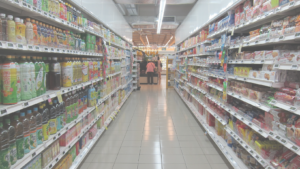
COVID-19 is a safety risk for essential workers who are working during the lockdown. Your employer must ensure that you and others are safe. They must do what is ‘reasonably practicable’ to minimise the risk of catching or spreading COVID-19.
Managing the COVID-19 risk will look different for each workplace. For supermarkets and similar services, it is reasonable to expect your employer to be doing the following:
Note: these suggestions are based off Safe Work Australia information and the government requirement for masks in indoor public settings, except for schools and office buildings. There is more detailed information on COVID-19 safety for each industry at Safe Work Australia.
If you think customers are not following physical distancing, speak with your employer about it. They could take further steps to ensure people are distancing, such as monitoring behaviour or marking out the direction of traffic.
If people are finding it hard to distance, there may be too many people in the space. Your employer should consider reducing the number of people permitted in at a time.
If you think your employer is not doing enough to make sure everyone stays safe, there are a few things you can do.
People might be upset or stressed due to the lockdown, but it is never okay for them to act aggressively towards you as a worker. Strategies for dealing with aggression include:
SafeWork Australia has further information about this issue.
If you do not feel comfortable working during the lockdown, you will have to negotiate with your employer about taking some time off work.
If you are a casual worker, you have no obligation to work if you choose not to. However, we all know it can be difficult to negotiate as a casual because your employer could stop giving you shifts in the long run.
If you work part-time or full-time with set hours, you may need to request leave from your employer to take time off work. Get in touch with the Working Women’s Centre if you are unsure about your leave options.
If you are a vulnerable person (due to having a compromised immune system, for example) the risk to your wellbeing is higher, and so your employer should consider allowing you to take leave to manage the risk to your safety. To negotiate some time away from work, provide your employer with a medical certificate or medical evidence showing that you are a vulnerable person.
As an essential worker, you are likely to be placed under increased pressure during the lockdown. You may be working increased hours, in more stressful situations and dealing with the uncertainty of the situation. It’s important that you take care of yourself through this time.
Some strategies for looking after yourself include:
There are also a number of mental health support services available:
Thanks for joining us at our SA Youth Week workshop, Our Voice, Our Future – Translating into Action. We appreciate all your input and have come away feeling energised and with a much better idea of some of the things that make youth participation and representation in decision making easier and harder.
From your feedback it was clear to us that there is a lot more to talk about so we’ve decided to host a second event and want to those who attended last time to delve deeper into what you want youth participation in decision making to look like.
WHEN: 5-7pm Thursday 10th June 2021
WHERE: The Working Women’s Centre
Snacks and light refreshments will be provided
Your ideas and feedback will inform the development of a proposal to the South Australian Government outlining how they can improve youth participation and representation in decision making processes.
The venue is wheelchair accessible. The nearest disability access bathrooms are at the Adelaide Train Station.
We acknowledge that this event is on Kaurna land and we pay our respect to the traditional custodians of the land, past and present . Sovereignty was never ceded.
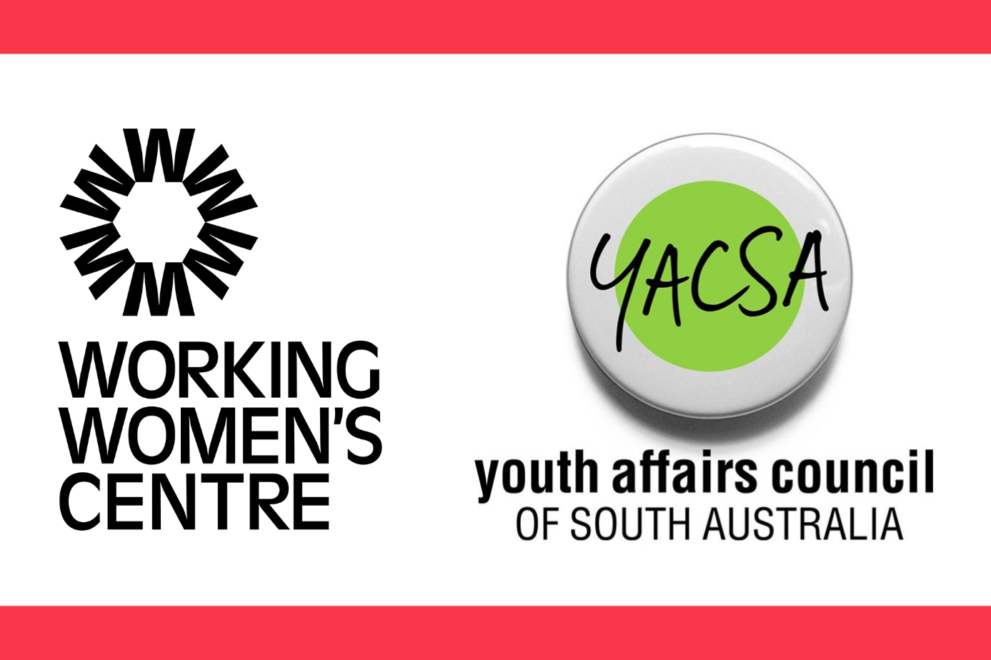
The Working Women’s Centre SA has launched a report titled Loss of Work, Isolation & Worry: The Disproportionate Impact of COVID-19 on Young Women. In the report, we share the experiences of young women during the pandemic, as well as crucial policy recommendations that improve gender equality throughout the Covid-19 recovery process.
We need decision makers to hear young women’s voices and make our recommendations happen! To achieve this goal, we need your support to make our voice stronger. Come along to our action session to help us spread the word!
You will have the chance to take action in support of these recommendations amongst other like-minded people, and with information and support from the Working Women’s Centre.
This session will include:
We will speak briefly about how you can take action, and then provide plenty of time to take action together.
Snacks provided.
We can’t wait to see you there!
Check out the report in the meantime.
The venue is wheelchair accessible. The nearest disability access bathrooms are at the Adelaide Train Station.
We acknowledge that this event is on Kaurna land and we pay our respect to the traditional custodians of the land, past and present . Sovereignty was never ceded.

Are you passionate about the issues facing young people and your community? Do you want to influence the decisions that affect you?
This year’s SA Youth Week theme is Our Voice, Our Future and we want to know how you want your ideas to be heard by government and other decision makers.
If you’re aged 15-24 and interested in how young people are engaged in decisions come join us!
WHEN: 4.30-6pm Thursday 6th May 2021
WHERE: The Working Women’s Centre
Food will be provided
Your ideas and feedback will be used by YACSA and the Working Women’s Centre as part of the state government funded COVID-19 youth recovery projects and will help form a proposal for better youth representation in government decision making.
Please note that due to space limitations only 2 people per organisation/community group can register.
The venue is wheelchair accessible. The nearest disability access bathrooms are at the Adelaide Train Station.
We acknowledge that this event is on Kaurna land and we pay our respect to the traditional custodians of the land, past and present . Sovereignty was never ceded.

This material is designed and intended to provide general information in summary form on legal topics, current at the time of publication, for general informational purposes only. This is not legal advice.
There have been many claims that Working from Home (WFH) will spearhead a feminist revolution, likening the change in our work environment to the structural changes we saw for working women during and after WW1.
These sorts of claims elicit many questions;
There are no simple answers, and as always it depends; not every person has the opportunity to WFH or experiences WFH equally. Can we re-imagine work, so that is works for us?
To keep this conversation going and maybe answer some of these questions, the Working Women’s Centre SA Inc is proud to host:
Working from Home: Risks and Rewards: An online panel conversation about gender and labour, while working from & in the home.
PANELLISTS:
This material is designed and intended to provide general information in summary form on legal topics, current at the time of publication, for general informational purposes only. This is not legal advice.
The impact of COVID19 on young women has been devastating.
When it comes to getting work, young women are in a worse position than any other age and gender demographic. So it’s important to question: are our needs reflected in COVID recovery policies? In this seminar, we will discuss the impacts of COVID19 on young women, what needs to happen to stop us from being left behind, and how to turn our anger into action. Several powerful young women will join us to share their thoughts and experiences.
Speakers:
There will be an Q&A session and opportunities to provide your input into the discussion. We acknowledge that this event will stream from Kaurna land and we pay our respect to the traditional custodians of the land, past, present and emerging. Sovereignty was never ceded.
This webinar is part of the Working Women’s Centre youth project that is funded by the Government of South Australia – Department of Human Resources.
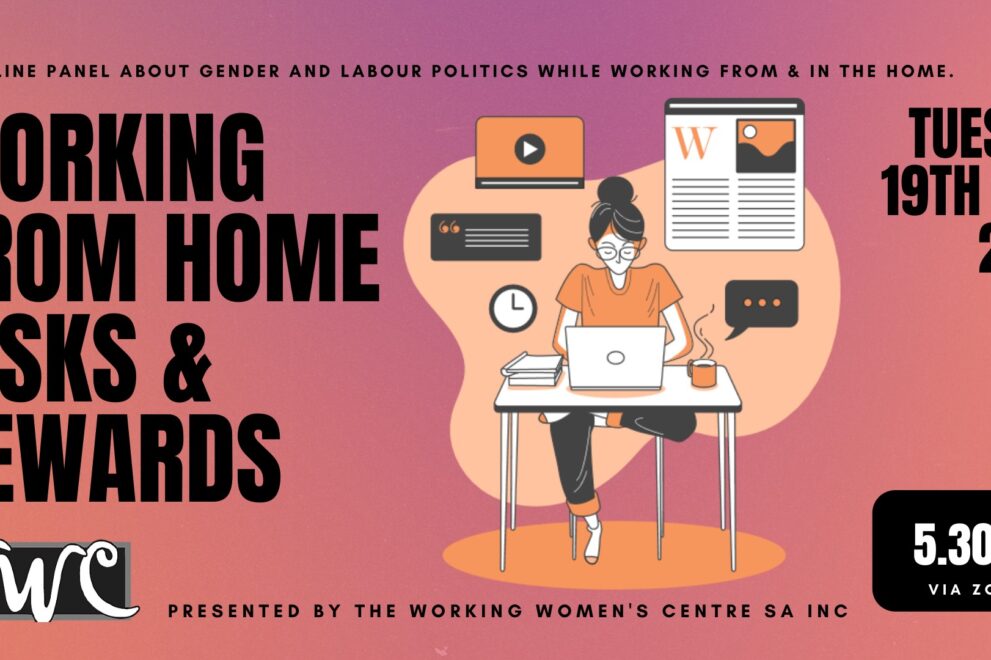
It all happened quite quickly. We arrived here as international students in February 2020, attended our orientation for two weeks, got lost on campus a few times and before we knew it, the pandemic had taken over most parts of the world and Australia closed its international borders indefinitely. No new international students would arrive, or indeed anyone who wasn’t an Australian citizen. I realized soon that I had to make the best of the situation. I missed home terribly and was concerned about my friends and family at home but could do nothing all the way from here. I decided to google all the things that I was interested in and tried to find organisations in South Australia I could get involved in, but I had no luck.
My glimmer of hope was an Ad put out by the Working Women’s Centre asking for volunteers on a project examining how young women in South Australia were impacted by COVID19. I was soon at the Centre every Monday amongst the most passionate women who were all collectively trying to improve the lives and wellbeing of women and vulnerable workers at the workplace. It was the most meaningful work I could ever have the pleasure of working on. Soon enough, we were picking up momentum by collecting more survey responses and holding consultations with international students (some of whom were my dear friends) to identify what challenges we were facing and how to make our voices heard. The result was the report titled “Loss of work, isolation & worry: the disproportionate impact of COVID-19 on young women” which was released in April, 2021.
We found that most COVID-19 related job losses occurred for part-time workers, who are disproportionately women and young people. Furthermore, international students who lost work due to COVID-19 had no access to government support like Jobkeeper or Jobseeker and had to rely on university support to make ends meet.
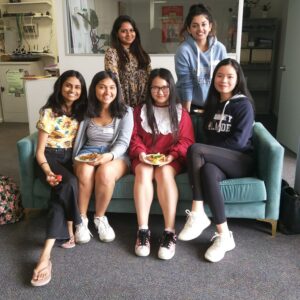
Pictured above: some of the participants from our consultation exploring the impact of the COVID19 pandemic on young women, with young international students based in South Australia.
Our consultation of female international students held in December revealed that finding a new job after losing one was one of the hardest tasks during a pandemic. In some cases, students reported a call-back rate of less than 10% when applying for jobs. Young women faced undue financial hardship as a result of this and had significant anxiety and worries over money matters. In addition to this, 44% of the survey respondents felt more discouraged about the prospect of finding work since COVID-19.
It is so difficult for young women to access safe and secure jobs, it is no wonder that we are stressed about being able to get one in the future.
This engagement with the Working Women’s Centre is what helped me get through the pandemic. It offered me a kind and supportive space to grow and learn. More importantly, I finally felt like I was part of a community that shared the same values as I did, advocating for those groups in society that often go unvoiced. If this is something you need as well, the Working Women’s Centre is the place for you.

Come along to our Feminist Action Session to help the Working Women’s Centre develop practical tools that can be used in workplaces.
1 in 3 Australians have experienced sexual harassment at work, yet only 18% of victims report their experience (according to the Respect@Work Report 2020).
The Working Women’s Centre SA has recently completed research that found that workplace posters are effective and engaging tools to highlight inappropriate behaviour and connect victims with support avenues. In the upcoming Feminist Action session, we will discuss ways in which we can combat sexual harassment in our workplaces and communities and support victims of sexual harassment. We’ll also share ideas for a meaningful poster for South Australian workplaces.
In this session you will have the opportunity to share your ideas and discuss the topic with like-minded individuals.
CONTENT NOTE: This event will involve a discussion of workplace sexual violence.
WHEN
29 Jul 2021
5.30-7.00pm
EVENT TYPE
Workshop
WHERE
The Working Women’s Centre SA, Level 1 Station Arcade, 52 Hindley Street
ACCESSIBILITY
Wheelchair Accessibility
We acknowledge that this event is on Kaurna land and we pay our respect to the traditional custodians of the land, past and present . Sovereignty was never ceded.
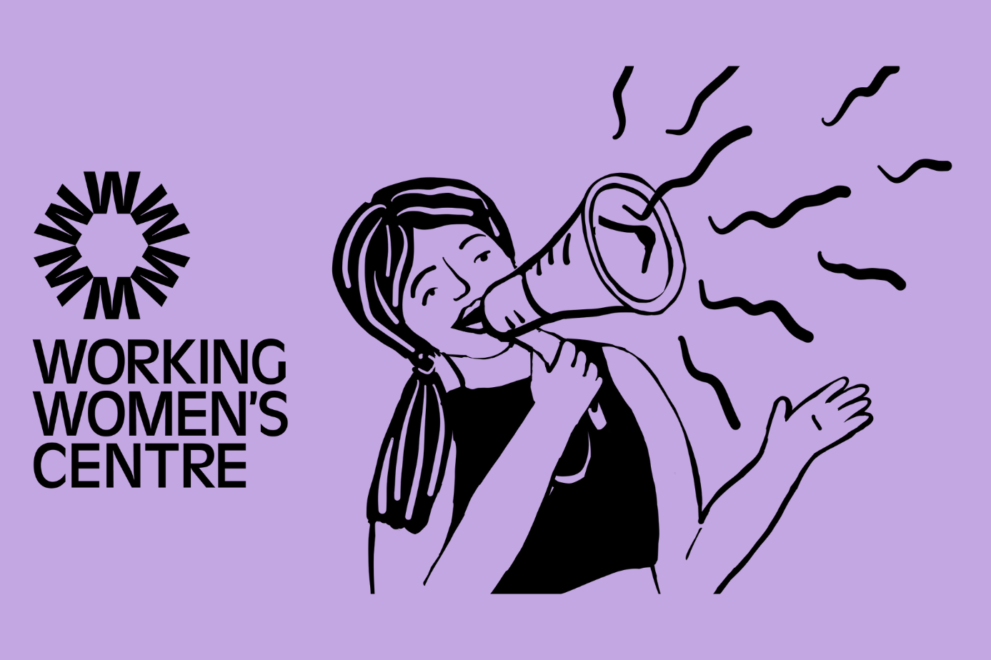
This interview was published by The Wire May 13 2021.
Listen to the full interview on The Wire here.
In a bid to repair their relationship with the women of Australia, the Federal Government is committing $3.4 billion to improving women’s safety, economic security, and health and wellbeing.
Women’s organisations say far more funds are needed to address workplace sexual harassment and violence.
Meanwhile, advocates welcome long-awaited recognition of violence against women and girls with disabilities.

This article was published by Croaky May 12 2021.
Read the full article on Croaky’s website here
Introduction by Croakey: The “shocking global disparity” in access to vaccines remains one of the biggest risks to ending the pandemic, the World Health Organization’s Director-General warned this week.
Dr Tedros Adhanom Ghebreyesus said high and upper-middle income countries, representing 53 percent of the world’s population, have received 83 percent of the world’s vaccines.
By contrast, low and lower-middle income countries account for 47 percent of the world’s population but have received just 17 percent of the world’s vaccines.
Speaking to a media briefing on 10 May, Dr Tedros cautioned against complacency as the number of COVID-19 cases and deaths plateau globally, notwithstanding rapidly increasing cases numbers and deaths in the South-East Asia region.
“Any decline is welcome, but we have been here before,” he said. “Over the past year, many countries have experienced a declining trend in cases and deaths, have relaxed public health and social measures too quickly, and individuals have let down their guard, only for those hard-won gains to be lost.”
The WHO Foundation has launched a “Together for India” appeal to raise funds to support WHO’s work in India, including the purchase of oxygen, personal protective equipment and medicines.
Dr Tedros said the spread of variants, increased social mixing, the relaxation of public health and social measures and inequitable vaccination are all driving transmission.
“My message to leaders is, use every tool at your disposal to drive transmission down, right now,” he said.
“Even if your country has a downward trend, now is the time to surge your capacities. Even in countries with the highest vaccination rates, public health capacities must be strengthened to prepare for the possibility of vaccine-evading variants, and for future emergencies.”
Meanwhile, public health researcher Alison Barrett details some of the latest research news on COVID vaccination and useful vaccination resources in the latest edition of the COVID-19 wrap, as well as reporting on the pandemic’s impact on women.
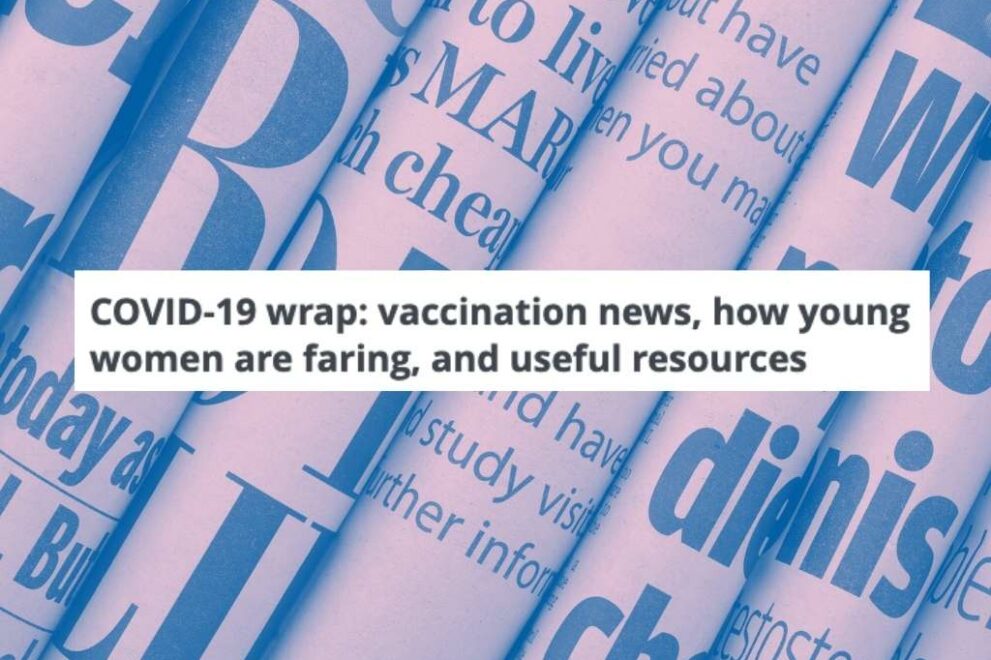
This article was published by City Mag May 10 2021.
Read the full article on CityMag’s website here
A report conducted by not-for-profit organisation Working Women’s Centre has found South Australian women were “disproportionally” impacted by the COVID-19 pandemic.
Between September 2020 and February 2021, the organisation collected written and online responses from 293 women, non-binary and genderqueer people under the age of 30. It found respondents were “hit hard” by the loss of work, increased pressure at work and home, and the mental health impacts of COVID-19.
The study revealed 44 per cent of respondents felt “discouraged” about the prospect of finding work, 48 per cent said they were “very worried” or “anxious” about money, a quarter had hours or pay reduced, and one in five lost their jobs.
This survey adds to the extensive media coverage and research conducted over the last year on how women have been disproportionately affected by the COVID-19 pandemic.
“WHAT CAN WE DO TO MAKE SURE THERE ARE BETTER OPPORTUNITIES HERE FOR SECURE WORK?”
— MADDIE SARRE
“The general mood that was conveyed to us by young women was very uncertain, and a lot of them spoke about being really worried about not being able to get work in the future,” Working Women’s Centre Youth Project Officer Maddie Sarre tells CityMag.
“Some of the main findings were that loss of work has been really huge for young women, because they are disproportionately working in a lot of the sectors that were impacted, also often employed casually, or in insecure work.
“But on the other hand, young women who are working in frontline sectors really faced increased pressure and stress. A lot of young women work in healthcare or in education, and about 40 per cent of those that responded to our survey said they were worried about getting COVID through their work, which I think takes a really big toll.”
Recently published ABS data shows women in the 20—34 age range accounted for 70 per cent of South Australia’s net female migration loss in 2019.
Although it’s been reported South Australia’s net interstate migration is at a 30-year high, the ABS data backing this claim shows South Australia is still consistently suffering a net loss in the 25—44 age range. (Though this data isn’t broken down by gender.)
Maddie says more research should be done to understand why this is occurring.
“We need to look into why are young people leaving,” she says, “and what can we do to make sure there are better opportunities here for secure work.”
Maddie says South Australia has “an opportunity right now”, as many of the young women surveyed by the Working Women’s Centre said they came back to South Australia “because of COVID”.
“It’s a real opportunity to retain those skills,” she says.
The WWC report includes four recommendations on how to improve outcomes for working women:
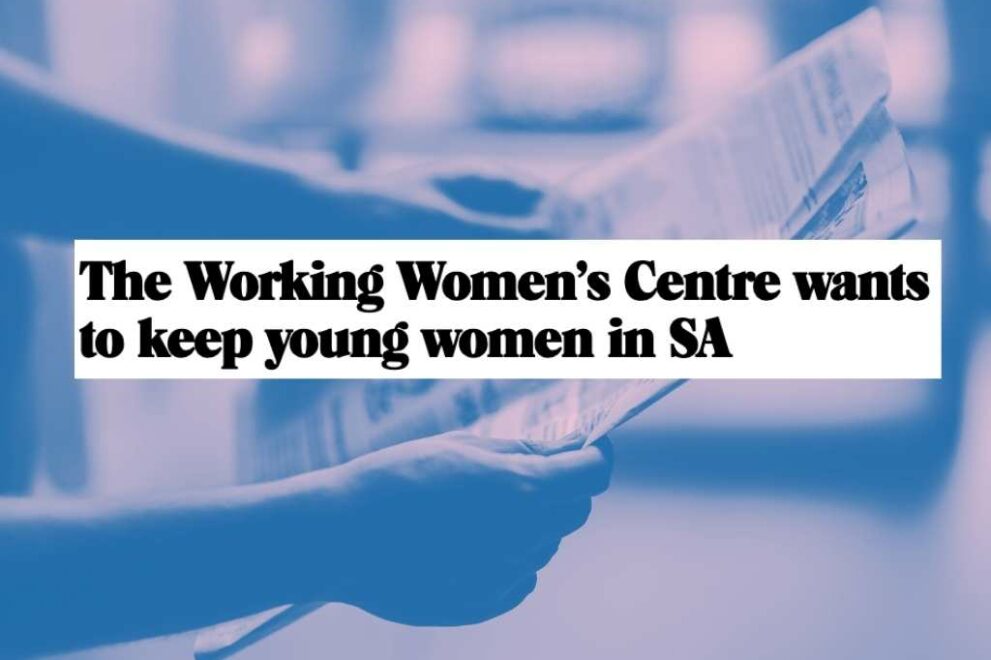
This article was published by ABC News Friday 30th April 5.47am 2021.
Read the full article on the ABC’s website here
A sample survey of South Australian women aged under 30 has revealed heightened anxiety and a lack of optimism about job prospects due to the global coronavirus pandemic.
Almost 300 women aged under 30 were surveyed by the Working Women’s Centre SA between September 2020 to February 2021.
More than 70 per cent of respondents said they had become “more anxious, sad or depressed” due to the pandemic, and 44 per cent said they were “discouraged” about the prospect of finding work.
“The social and economic ramifications of COVID-19 have disproportionately affected young women compared to other demographics,” the report stated.
More than half of respondents found “their way of working disrupted” and more than a quarter “had their hours or pay reduced”.
Nearly half said they were “very worried or anxious” about money.
“Between the time that SA’s first COVID-19 restrictions entered force in March 2020 and January 2021 all-male jobs had recovered, while female jobs remained well below pre-pandemic levels,” the report stated, citing Australian Bureau of Statistics data.
“This is a stark demonstration of the vulnerability of female jobs to disruption.
Working Women’s Centre youth project officer Maddie Sarre said the findings represented “a snapshot” of how young women in SA continued to be affected by coronavirus and its ongoing economic effects.
“On the other hand, those that continued to work during the pandemic faced increased pressure, through increased workloads and stress in frontline sectors such as healthcare.
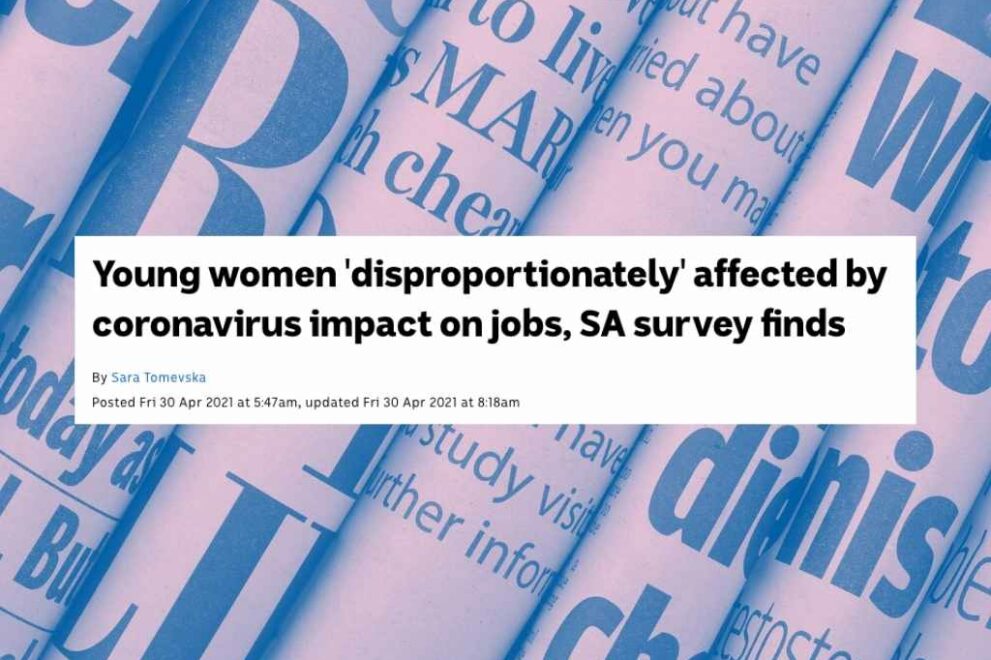
The Working Women’s Centre SA has launched a new report: Loss of work, isolation and worry: the disproportionate impact of COVID-19 on young women. The report finds that young women have been hit by loss of work, increased pressure at work and home and the mental health impacts of COVID-19.
Issues including insecure work, economy inequality and violence against women, which were exacerbated by COVID-19, position young women as the most in need of support through gender responsive COVID-19 recovery plans.
We are optimistic that the COVID-19 recovery is an opportunity for real and affective change. Our report emphasises that the creation of secure jobs in feminised sectors will improve employment for women and improve the economy through the COVID-19 recovery.
The report is a unique snapshot of the impact of COVID-19 specifically on young women in SA, looking at the combined impact of age and gender on these women’s shared experiences of the pandemic.
Please find the full report here.
For media enquiries, or to found out how you can support the recommendations, please contact Maddie at maddie@wwc.org.au
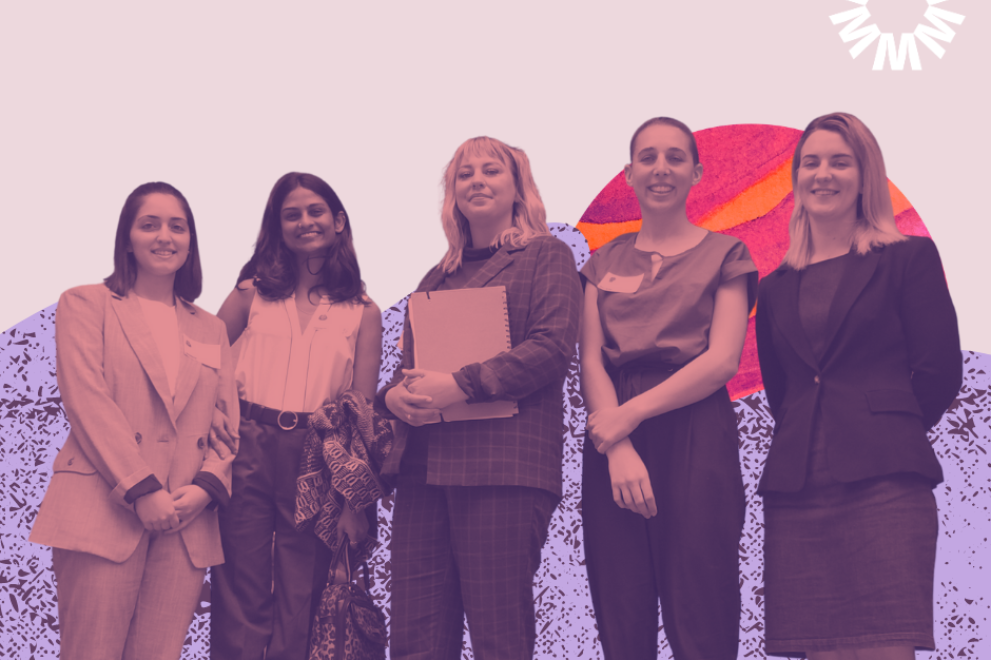
By filling out this survey between 16th December 2020 and 31st January 2021, you will go in the draw to win one of our fantastic giveaway prizes! If you would like to go in the draw, please make sure you provide us with your contact details. You will have a chance of winning:
Each winner will win one of these giveaways. By filling out the survey, you automatically go in the draw to win one of these prizes as long as you provide us with your contact details.
